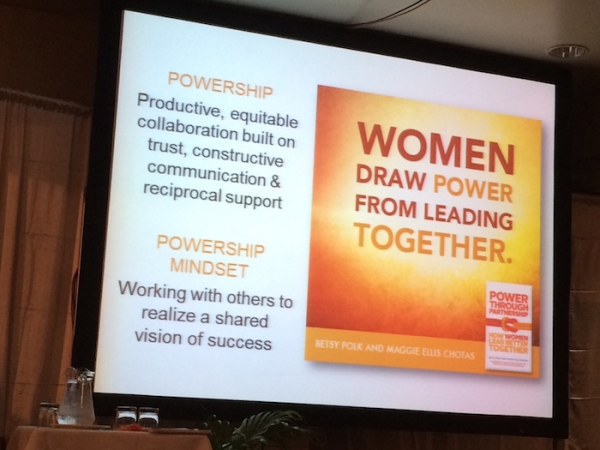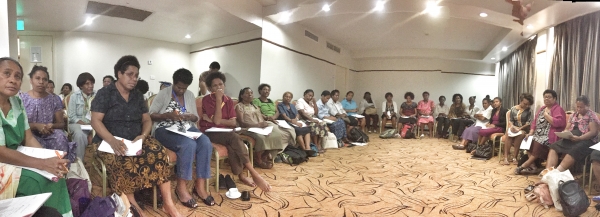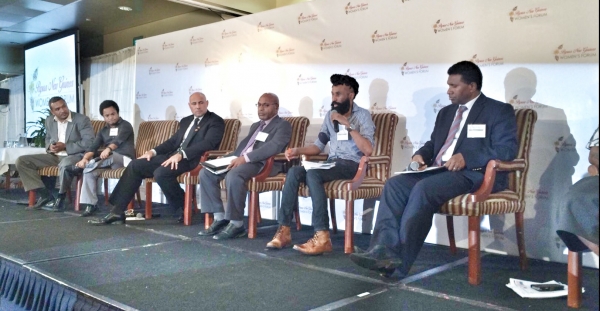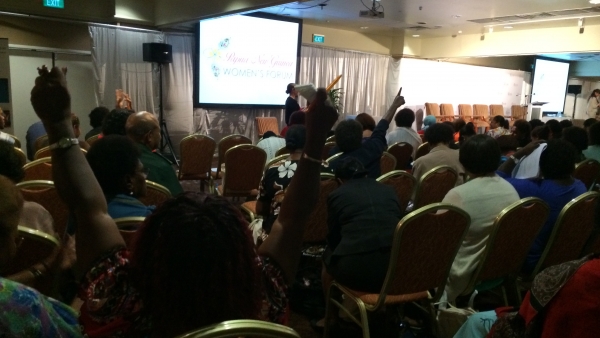“I divorced my husband because he was married to other women,” proclaimed a woman in a matter-of-fact way in what was the very last workshop of the very last day of the PNG Women’s Forum. That statement was both a declaration of her independence and confirmation that she was empowered to take charge of her life and make her own decisions. The workshop, Turn Your Passion into a Business, was led by Marga Fripp, the president of Empowered Women International, a not-for-profit organization whose mission is “to create jobs and entrepreneurial opportunities for immigrant, refugee, low-income, and at-risk women in the Greater Washington DC Metro Area.” The forty-two women who filled the room each voiced their passion, which was either already a business or something they can turn into one. Within the two and a half hour-long workshop, women exchanged ideas and encouraged each other to be more self-reliant – a common thread throughout the entire forum.

Three days before, Kate and my first introduction to the forum came by way of sitting in on one of the session’s preparation meetings to get an idea of how the sessions are organized. This one was titled, Decreasing Barriers to Education for Girls, with the conversation focusing on the question, “has free education improved girls’ enrollment in school and education quality?” The panel consisted of the principal of a school, the minister of Education, and a representative of UNICEF, among others. While free education seemed like a no-brainer, many obstacles associated with that privilege negated its intended purpose. For example, free education meant more students, more mouths to feed, more space necessary for more classrooms, more dorms to house those students and more teachers. As an increase in the operating budget was not part of the plan when free education was offered, the overall quality of the educational experience has suffered as a result. This is indicative of the complexities inherit in finding practical solutions for the issues facing the women in PNG. The forum was lively and ripe with such discussions.

I was honored to participate in one of the last sessions in the forum, Developing Male Advocates Against Gender Based Violence (GBV) – How can PNG men help each other respect women and be positive role models for young men. Eddie Aila, Founder and Head Trainer of Warrior Culture – a male advocacy group – moderated the panel. He started by illustrating how the stories around GBV change with time. “Mary is beaten up by John, Mary is beaten up by her husband, Mary is a battered woman.” The male perpetrator is often forgotten. This session was pivotal in that most of the focus had been on the women – providing care, a safe space and medical attention after the abuse, but the focus of this session was the elephant in the room, the root of the problem – the men. At a heated breakout session that followed, a Men’s Forum – a gathering of men from all 22 provinces – was the top recommendation when moving forward to address issues around GBV.


